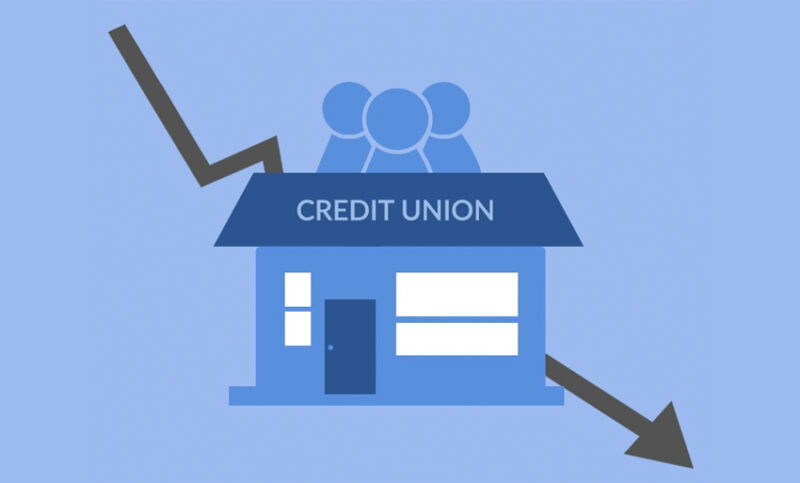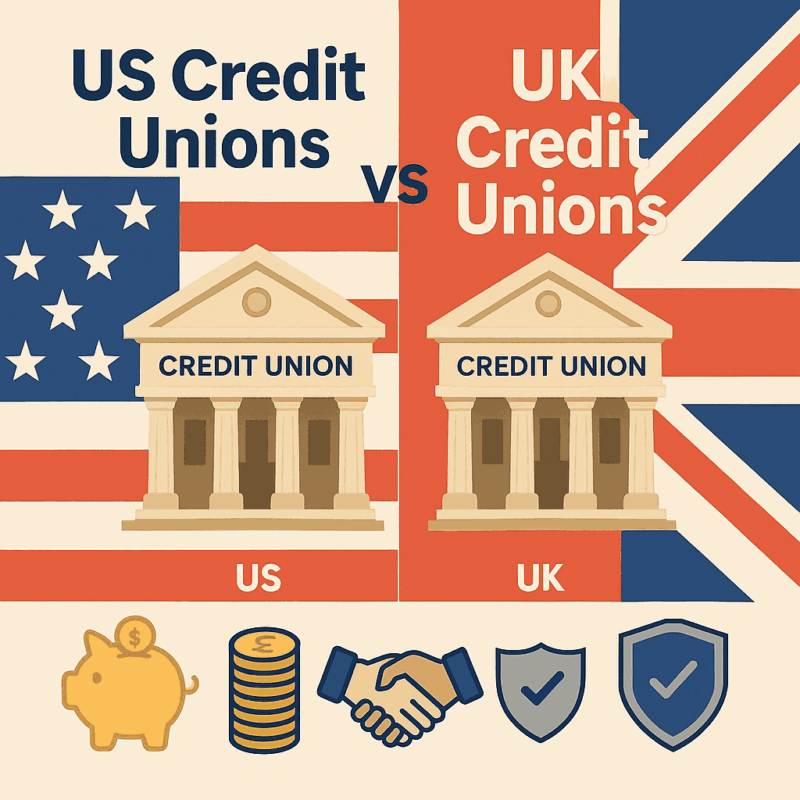A credit union is a member-owned financial institution that operates much like a bank but with a different structure and purpose. Instead of being owned by shareholders seeking profit, credit unions are owned and controlled by their members — the people who deposit money and use their services.
This means profits are returned to members through lower fees, higher savings rates, and better loan terms.
Credit unions in the United States are regulated by the National Credit Union Administration (NCUA), which insures deposits up to $250,000, the same level offered by the FDIC for banks.
There are approximately 69 credit unions in Florida with Suncast Credit Union being the largest, with 1.1 million members and 74 locations.
How Credit Unions Work

When you open an account with a credit union, you become a member and part-owner of that organization.
Each member has one vote in electing the board of directors, regardless of how much money they have in their account. This structure keeps decisions focused on members’ needs rather than maximizing profits.
Credit unions often serve specific communities, such as employees of a company, residents of a city, or members of an association.
What Products and Services Do Credit Unions Offer?
Credit unions offer nearly all the same products as traditional banks. Members can open checking and savings accounts, take out credit cards, and access home, auto, and personal loans.
Many credit unions also provide mortgages, small business loans, and student loan refinancing. They frequently offer better interest rates on savings and lower rates on loans because they reinvest earnings back into the membership – and help people get credit or loans for personal or business purposes, even if they are self-employed.
Some even provide investment services, insurance products, and financial education programs to help members manage their money more effectively.
What Are The Main Benefits of Joining a Credit Union?

One of the biggest advantages of joining a credit union is the personal service. Because they are smaller and community-focused, credit unions often know their members by name and take time to understand their financial situations.
This personal connection can make it easier to qualify for loans, especially for people who are building credit or recovering from financial hardship.
On average, credit union loan rates are about one to two percentage points lower than bank rates for the same type of loan. According to the Credit Union National Association, members collectively saved over $15 billion in 2023 through lower fees and better interest rates compared to traditional banks.
Another benefit is that credit unions tend to charge fewer and lower fees. Many offer free checking accounts with no minimum balance requirements and lower overdraft fees. They also emphasize financial education, helping members make informed decisions about budgeting, borrowing, and saving. Because credit unions are not driven by profit, they focus on long-term relationships and community growth.
The Sense of Community
Credit unions often play an active role in their local areas. They sponsor community events, offer scholarships, and support local charities.
Members often feel that their money is being used to strengthen their community rather than to enrich corporate shareholders. For younger people, joining a credit union can be a smart way to build credit and establish good financial habits in a supportive environment.
Why Choose a Credit Union Over a Bank?

Credit unions offer a community-centered alternative to traditional banks, emphasizing member ownership and not-for-profit operations.
When you join a credit union, you become both a customer and a partial owner, which means profits are returned to members through lower loan rates, higher savings yields, and reduced fees.
This member-first model contrasts with banks, where profits go to shareholders. Credit unions often prioritize financial education, offering guidance and support to help members manage debt, save effectively, and plan for long-term goals.
Additionally, they tend to have a strong local presence, which fosters trust and personal relationships that can be difficult to find in larger, corporate banking environments. Many people choose credit unions for their personalized service, ethical approach, and focus on community development—values that resonate with those seeking fairness and transparency in their financial dealings.
Despite being smaller than major banks, credit unions have evolved technologically, providing online banking, mobile apps, and digital payment options comparable to traditional institutions.
The difference lies in their mission: instead of maximizing profit, they maximize member benefit. This can make them especially appealing during economic uncertainty, as their decisions are driven by stability and service rather than stock performance. By joining a credit union, individuals often find a cooperative spirit that aligns with their values and delivers tangible financial advantages without sacrificing modern convenience.
How Do US Credit Unions Differ from UK Credit Unions?

While credit unions in both the US and UK share a cooperative ethos, their structure, scale, and regulatory environments differ significantly.
In the United States, credit unions are highly developed, serving over 135 million members and offering a full range of financial products—from mortgages and auto loans to credit cards and investment services.
They are federally insured by the National Credit Union Administration (NCUA), which provides protections similar to the FDIC for banks. US credit unions operate independently, often tied to specific communities, professions, or organizations, but with broad membership eligibility in recent years.
In contrast, UK credit unions are smaller, more locally focused, and primarily serve specific geographic areas or community groups. They are regulated by the Financial Conduct Authority (FCA) and the Prudential Regulation Authority (PRA), but their services tend to be simpler—mainly savings and affordable loans.
UK credit unions often emphasize financial inclusion, helping those who might struggle to access mainstream banking. While both systems share cooperative principles, US credit unions function more like community banks in scope and capability, whereas UK ones maintain a more grassroots, social purpose. Both, however, remain committed to people over profit.
What Are The Alternatives to Credit Unions?
The main alternative to a credit union is a traditional bank. Banks usually have more branches, more advanced digital platforms, and a wider range of products.
Large national banks may also be better suited for people who travel often or need international banking services. However, banks typically have higher fees and less personal customer service. Online-only banks are another alternative. They often offer high interest rates on savings accounts and convenient mobile access, but they lack the community focus and personal touch of a credit union.
Conclusion
A credit union offers the same convenience and security as a bank but with a member-first approach. It can be a great choice for anyone who values personal service, lower fees, and community involvement. With more than 135 million members nationwide and steady growth every year, credit unions have proven to be a reliable and rewarding way to manage money. Whether you’re looking to save, borrow, or build your financial future, being part of a credit union can help you reach your goals while supporting the community around you.
Related Posts:
- Why Financial Well-Being Should Be Part of Your Career Plan
- Why IPTV Subscriptions Are Replacing Traditional…
- Why a One Night Stand Isn't For Everyone
- Why Florida's Sports Betting Launch Faces A One-Month Delay
- Why Is Cricket Considered To Be One Of The Most…
- Where to Start if You Want to Be a Part of the Crypto World








